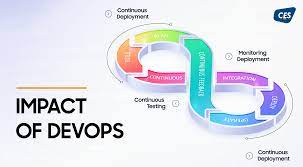CRM System Integration: Streamlining Business Operations
In today’s competitive business landscape, companies are constantly seeking ways to improve efficiency, enhance customer relationships, and drive growth. One powerful solution that has emerged to address these needs is Customer Relationship Management (CRM) system integration.
What is CRM System Integration?
CRM system integration involves connecting a company’s CRM software with other systems and applications used within the organization. By integrating CRM with tools such as marketing automation platforms, ERP systems, and customer support software, businesses can create a unified view of their customers and streamline their operations.
The Benefits of CRM System Integration
Integrating CRM systems with other business applications offers a wide range of benefits:
- Improved Data Accuracy: By syncing data across different systems, businesses can ensure that customer information is consistent and up-to-date.
- Enhanced Customer Insights: Integrated CRM systems provide a comprehensive view of customer interactions, enabling companies to deliver personalized experiences and targeted marketing campaigns.
- Increased Efficiency: Automation of processes through integration reduces manual tasks and improves workflow efficiency.
- Better Decision-Making: Access to real-time data from integrated systems allows for informed decision-making and strategic planning.
- Cost Savings: Streamlining operations through integration can lead to cost savings by eliminating duplicate data entry and reducing errors.
Challenges of CRM System Integration
While the benefits of CRM system integration are significant, businesses may encounter challenges during the implementation process. These challenges include compatibility issues between different systems, data migration complexities, and ensuring data security and compliance.
Conclusion
In conclusion, CRM system integration plays a crucial role in helping businesses optimize their operations, improve customer relationships, and drive growth. By harnessing the power of integrated systems, companies can gain a competitive edge in today’s fast-paced business environment.
Understanding CRM System Integration: Key Benefits, Challenges, and Cost Savings
- What is CRM system integration?
- What are the benefits of integrating CRM systems with other business applications?
- What challenges can businesses face during CRM system integration?
- How does CRM system integration improve data accuracy and customer insights?
- What cost savings can companies achieve through CRM system integration?
What is CRM system integration?
CRM system integration refers to the process of connecting a company’s Customer Relationship Management (CRM) software with other systems and applications used within the organization. By integrating CRM with tools such as marketing automation platforms, ERP systems, and customer support software, businesses can achieve a unified view of their customers and streamline their operations. This integration enables companies to enhance data accuracy, gain deeper customer insights, improve operational efficiency, make better-informed decisions, and ultimately drive cost savings by eliminating redundant tasks.
What are the benefits of integrating CRM systems with other business applications?
Integrating CRM systems with other business applications offers a multitude of benefits to organizations. By connecting CRM software with tools such as marketing automation platforms, ERP systems, and customer support software, companies can achieve improved data accuracy, enhanced customer insights, increased operational efficiency, better decision-making capabilities, and cost savings. This integration enables businesses to have a unified view of customer interactions, leading to personalized experiences, targeted marketing campaigns, and streamlined workflows. Overall, integrating CRM systems with other business applications empowers organizations to optimize their operations, strengthen customer relationships, and drive growth in today’s competitive business landscape.
What challenges can businesses face during CRM system integration?
Businesses can encounter various challenges during CRM system integration, including compatibility issues between different systems, complexities in data migration, and the need to ensure data security and compliance. Ensuring seamless communication and data flow between the CRM system and other integrated platforms is essential for a successful integration process. Additionally, businesses must address potential disruptions to daily operations and train employees on using the integrated system effectively to maximize the benefits of CRM integration. By proactively identifying and addressing these challenges, businesses can overcome obstacles and streamline their operations for improved efficiency and customer relationship management.
How does CRM system integration improve data accuracy and customer insights?
CRM system integration improves data accuracy and customer insights by ensuring that information is consistently updated and synchronized across different systems. By connecting CRM software with other business applications, companies can eliminate duplicate data entry and reduce errors, leading to a more reliable database. This unified view of customer data enables businesses to gain deeper insights into customer interactions, preferences, and behaviors. With integrated systems providing a comprehensive view of customer touchpoints, companies can deliver personalized experiences, targeted marketing campaigns, and better anticipate customer needs.
What cost savings can companies achieve through CRM system integration?
Companies can achieve significant cost savings through CRM system integration by streamlining their operations, reducing manual tasks, and eliminating duplicate data entry. By connecting CRM software with other business applications, companies can improve efficiency, enhance data accuracy, and automate processes, leading to lower operational costs. Additionally, integrated CRM systems provide real-time insights that enable better decision-making and strategic planning, ultimately helping companies optimize their resources and maximize cost-effectiveness in their operations.



